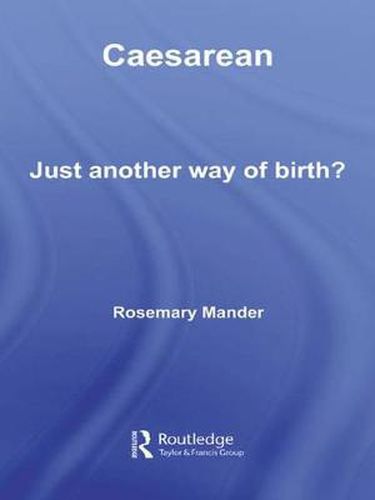Readings Newsletter
Become a Readings Member to make your shopping experience even easier.
Sign in or sign up for free!
You’re not far away from qualifying for FREE standard shipping within Australia
You’ve qualified for FREE standard shipping within Australia
The cart is loading…






This book critically analyzes the place of caesarean in childbearing at the beginning of the twenty first century. It questions the changes that are taking place in childbirth and, in particular, the effects and implications of an increase in caesarean births.
This controversial work by a practising midwife and researcher, includes discussion of:
the context of the operation and description of it
health systems around the world and their caesarean incidence rates
decision-making and cultural/medical constraints
the short and long term implications of caesarean for baby and mother.
Using up-to-date research, Rosemary Mander bases her argument on a firm evidence-base and argues that the rapidly rising caesarean section rate may not be for the benefit of either the woman giving birth or her baby. Rather, the beneficiaries may actually be those professionals whose investment is in extending the range of their influence and thus increasing the medicalization of normal life.
$9.00 standard shipping within Australia
FREE standard shipping within Australia for orders over $100.00
Express & International shipping calculated at checkout
This book critically analyzes the place of caesarean in childbearing at the beginning of the twenty first century. It questions the changes that are taking place in childbirth and, in particular, the effects and implications of an increase in caesarean births.
This controversial work by a practising midwife and researcher, includes discussion of:
the context of the operation and description of it
health systems around the world and their caesarean incidence rates
decision-making and cultural/medical constraints
the short and long term implications of caesarean for baby and mother.
Using up-to-date research, Rosemary Mander bases her argument on a firm evidence-base and argues that the rapidly rising caesarean section rate may not be for the benefit of either the woman giving birth or her baby. Rather, the beneficiaries may actually be those professionals whose investment is in extending the range of their influence and thus increasing the medicalization of normal life.